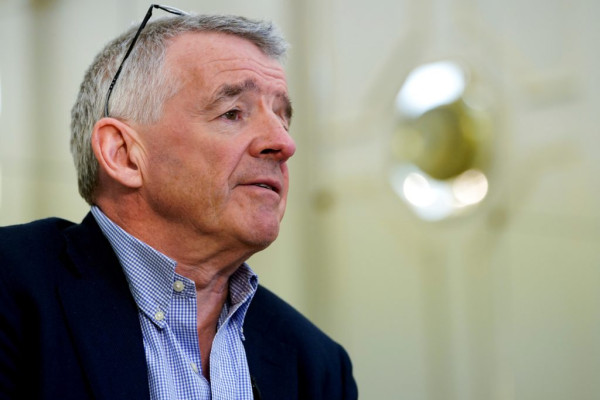Airlines clash with the EU over greenwashing claims
BRUSSELS — Airlines are trying to lure climate-conscious passengers by advertising that offers guilt-free, low-carbon flights, but that’s run into objections from the European Commission.
“I think the airlines are being a little too cute here,” said Andrew Charlton, managing director of the Aviation Advocacy consultancy, noting that the green claims many carriers are making can be overblown.
Twenty airlines now under investigation by the Commission for alleged greenwashing; Brussels launched the action on April 30, following a warning issued by the European Consumer Organisation (BEUC) in June. Airlines have 30 days to correct any misleading claims.
The clash has its roots in the climate policy that the EU is forcing on the aviation sector.
Airplanes account for about 2.5 percent of greenhouse gas emissions, and in a bid to cut that Brussels last year agreed to mandate that the sector gradually transition to sustainable aviation fuels (SAFs) — renewable or waste-derived fuels that can be used in existing engines but have a lower carbon footprint.
By 2025, 2 percent of the fuel powering aircraft in the EU has to be green, rising to 5 percent in 2030, and then increasing every five years to 70 percent in 2050. Airplanes currently use only a tiny amount of SAF, which is much more expensive than kerosene.
Airlines are keen to tout what green progress they’re making.
Lufthansa’s “Green Fares” promises consumers — simply by “selecting one of the Economy Green and Business Green fares” — to slash 20 percent of individual flight-related CO2 emissions through the use of SAFs and to offset the remaining emissions “to an equivalent extent by contributing to high-quality climate protection projects” — a reference to offset credits.
KLM told consumers that they could reduce their carbon footprint thanks to SAF and a “reforestation program.” The Air France-KLM group also confirmed that its airlines Air France, KLM and Transavia Netherlands had received the Commission’s notice for alleged greenwashing.
Ryanair, which on Tuesday confirmed it’s also facing EU scrutiny, said it is “one of the greenest and cleanest airlines in Europe, which is statistically true” because the airline flies with high load factors and uses environmentally efficient aircraft, Ryanair Group CEO Michael O’Leary told a press conference at Brussels Airport.
Ryanair includes a “Carbon Calculator” and an additional paid service that supposedly allows passengers to “compensate your estimated CO2 emissions.”
Reality check
But those claims are out of line, BEUC warned.

The consumer lobby noted that airlines should not promote the use of SAFs because they are “not yet market-ready and will not be widely available before at least the end of the next decade.” It also called offset claims “factually incorrect” because there is no proven equivalence between their climate benefits and the CO2 emissions associated with air travel.
Lufthansa confirmed that its airlines: Lufthansa, Brussels Airlines, Swiss, Austrian Airlines, Air Dolomiti and Eurowings, had received the EU complaint, but also continued to insist that flying can be compatible with climate policies.
“Already by 2030, the Lufthansa Group wants to halve its net CO2 emissions compared to 2019 through reduction and compensation measures,” a plan that was “validated by the independent Science Based Targets initiative (SBTi) in August 2022,” the airline group said in a statement.
Lufthansa noted that it is also focusing on “accelerated fleet modernization, the continuous optimization of flight operations, [and] the use of Sustainable Aviation Fuel (SAF).”
Charlton, the aviation consultant, said that the green advertising doesn’t match the sector’s reality.
“We all know that SAF is better than jet fuel, but that is not the real issue,” he said. “The issue is whether one can claim to be sustainable in general when 0.001 percent of your fuel is 80 percent less polluting. I suspect that the airlines are on the wrong side of this.”
Airlines are aware that they’re treading a fine line.
BEUC looked at Ryanair’s website and noted that when a consumer clicks on “more info,” the following disclaimer appears: “While offering a contribution towards emissions compensation will not make the flight itself ‘greener,’ our carbon calculator enables you to participate in a number of great environmental projects.”
The consumer organization called this disclaimer “unclear” and “highly ambiguous” because it includes words like “contribution towards” which “could refer to anything from 1 percent to 99 percent” of the emissions considered.
KLM’s fine print is also more nuanced.
Planting trees, of course, “doesn’t impact the direct emissions of the flight itself,” the Dutch airline admitted in its claim, “but your contribution will help restore forests that absorb CO2.”